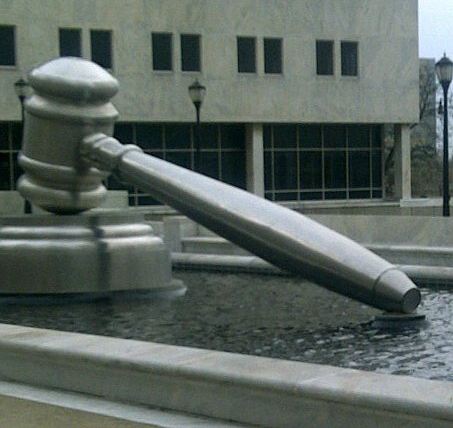By Rachel Lynn Foley, Esq.
January 11, 2012
D is For Deed in Lieu of Foreclosure
Sometimes when people file for bankruptcy...
they are looking tosurrender their home. Even though you surrender your home through bankruptcy you may still own the house itself after a discharge. The bankruptcy will discharge the debt but it does not transfer the property rights or ownership of the real property. Real property can be your home or any other land that you own.
The only way that one can transfer the ownership rights of real property is generally one of four ways. The first way to transfer the property is for the creditor to foreclose on the property. Depending upon the foreclosure laws of your state this will be through either a judicial or non-judicial process. The second way to transfer the property is to sell the property. Meaning that someone purchases the property and pays off the current loan in its entirety. You will no longer own the property or owe the debt. The third way to transfer the property is to quit claim the property. A quit claim deed terminates the property rights of the current owner and places it into the hands of the new person listed on the deed. The quit claim deed offers no warranty of title or interest rights. The fourth way to transfer property is to sign a deed in lieu of foreclosure.
A deed in lieu of foreclosure is a deed that transfers your property rights back to the lender. Generally a mortgage company will only consider a deed in lieu of foreclosure if the loan is in default and in imminent danger of foreclosure. Another consideration for the mortgage company consider the deed in lieu of foreclosure is whether or not there are two mortgages on the property. If there are two mortgages then the mortgage company generally will not offer and/or accept a deed in lieu of foreclosure. If your property and loan qualifies for a deed in lieu of foreclosure the mortgage company might be happy to make that offer because it can save them thousands of dollars.
So why would you want to accept a deed in lieu of foreclosure? Quit simply a deed in lieu of foreclosure is a quick and easy way to transfer the property rights back to the mortgage company in exchange for wiping out your debt. As a result of the back log of foreclosures there is no guarantee of when or if the mortgage company will foreclose on the surrendered property. But until the property has been foreclosed upon or until the rights are transferred you are responsible for the care and maintenance of the property.
Care and maintenance of the property means that you will need to shovel the walks or mow the grass. This also means that you must maintain the house and/or land in such a condition that is does not violate the local municipal ordinances. A municipal code violation could lead to your arrest in extreme cases. Let’s say that you move out of the surrendered home and you have discharged the debt in bankruptcy. At least twelve months have passed since you were living in the surrendered home and you have not updated the forwarding address with the post office which only forwards for twelve months. Additionally since you moved you have stopped caring for the property and now the grass is over gown and out of control. The city within which the property sits may now cite you for noxious weeds. The citation may be posted on the house and/or a mailed to the property address. You did not receive the citation because the mail is not forwarded and you did not check the house to see the posting. The citation will have a court date for you to defend yourself but you will not be there because you did not receive the citation. When you fail to appear in court, the prosecutor will ask and the judge will more than likely issue a warrant for your arrest for failure to appear in court. All of this could have been avoided if the property rights had been transferred to the mortgage company or another party. A deed in lieu of foreclosure can eliminate the scenario above by transferring the property rights back to the mortgage company thereby eliminating your responsibility to care for the property.
Remember that knowledge is power and the more knowledge you have about a deed in lieu of foreclosure the more power you will have to transfer the property and eliminate the risk of being arrested stemming from noxious weeds.
For more articles regarding the letter D in the Bankruptcy Alphabet click here.

